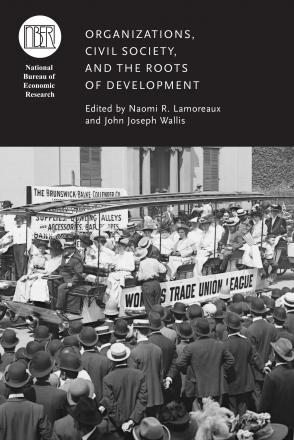Voluntary Associations, Corporate Rights, and the State: Legal Constraints on the Development of American Civil Society, 1750–1900
Published Date
Copyright 2017
ISBN 9780226426365

The freedom of citizens to form voluntary associations has long been viewed as an essential ingredient of modern civil society. Our chapter revises the standard Tocquevillian account of associational freedom in the early United States by accentuating the role of state courts and legislatures in the creation and regulation of nineteenth-century American nonprofit corporations. Corporate status gave associations valuable rights that went beyond the basic right of individuals to associate. Government officials selectively used their power to grant and enforce corporate charters to reward politically favored groups while denying equivalent rights to groups they viewed as politically or socially disruptive.
-
-
Copy CitationRuth H. Bloch and Naomi R. Lamoreaux, Organizations, Civil Society, and the Roots of Development (University of Chicago Press, 2016), chap. 7, https://www.nber.org/books-and-chapters/organizations-civil-society-and-roots-development/voluntary-associations-corporate-rights-and-state-legal-constraints-development-american-civil.Download Citation


